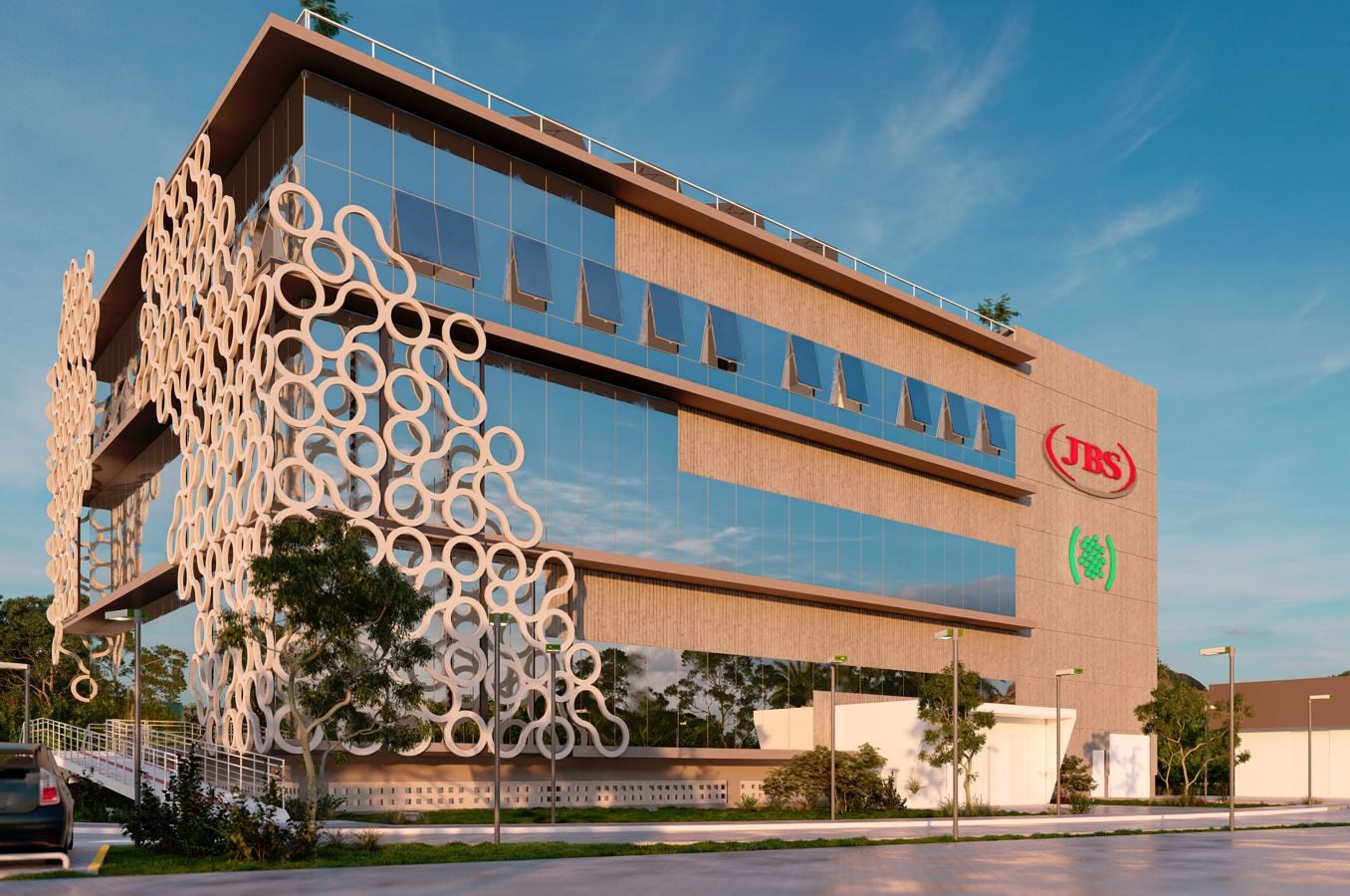
Meat giant JBS has started construction work on an R&D site that will develop cell-based protein, marking its latest investment in the early-stage industry.
JBS said the facility will work towards making the production of cultured protein “more efficient, scalable and economically competitive”.

Discover B2B Marketing That Performs
Combine business intelligence and editorial excellence to reach engaged professionals across 36 leading media platforms.
The Biotech Innovation Centre will be located in the Sapiens Parque innovation park in Florianópolis in south-eastern Brazil. Scheduled to open towards the end of next year, it will be the country’s largest food biotechnology research centre.
JBS said the centre will require approximately $62m in investment in three instalments. The third stage will consist of building “a basic module on an industrial scale to demonstrate the technical and economic viability of cultured protein”.
The Brazil-based meat behemoth signalled its interest in the nascent market for cell-cultivated meat market back in 2021 when it acquired a majority stake in Spanish-cultivated protein firm BioTech Foods. The deal gave the company access to BioTech’s technology and protein production in return for JBS’ industrial processing capacity, and pathed the way for the construction of the world’s largest cultivated beef protein plant in San Sabastián, Spain, earlier this year.
Some of the meat industry’s largest players have put investment behind the fledgling cell-protein sector. Cargill and Tyson Foods have also taken stakes in the up-and-coming players. Both have invested in Memphis Meats – now called Upside Foods – while Cargill has backed Aleph Farms and Tyson has put cash into Future Meat Technologies (now called Believer Meats).

US Tariffs are shifting - will you react or anticipate?
Don’t let policy changes catch you off guard. Stay proactive with real-time data and expert analysis.
By GlobalDataSo far, only the US and Singapore have cleared cell-based meat for commercial sale and, even then, only a small number of companies are selling products in selected restaurants.
Nevertheless, as the regulatory environment poses a roadblock to commercialisation, total investment in cultured protein innovators remains high. According to the Good Food Institute’s analysis, annual investment in cultivated meat and seafood reached $1.3bn in 2021 and $896m in 2022.
A number of cultivated meat market forecasts released in 2022 predict double-digit shares of the global market by 2040: Barclays estimated a market share of 20% (or $450bn) while GovGrant estimates that cultivated meat would capture 35% of total meat sales.
Certainly, specialists in the field appear confident: last week, Upside Foods, one of two businesses to receive regulatory approval in the US to market its cell-based chicken, set out plans to set up its first “large-scale” factory.
Nevertheless, some of the market forecasts have been called into question and there remains a long road ahead before cell-based meat is part of mainstream diets.
“My assessment today is that there’s little consumer demand for cultivated meat. It’s possible that genius marketing and serendipity can create such demand though,” US industry consultant and Just Food columnist Victor Martino wrote in June after Upside Foods and Good Meat secured their clearance to sell.
“Government approval ... marks a paradigm shift for Upside Foods, Good Meat and the cultivated meat companies to come after them, from idea and concept to reality. The new paradigm for these companies is that the American consumer is now in charge of the cultivated meat business in the US. Entrepreneurs and investors have built it. But will consumers come?”
Our signals coverage is powered by GlobalData’s Thematic Engine, which tags millions of data items across six alternative datasets — patents, jobs, deals, company filings, social media mentions and news — to themes, sectors and companies. These signals enhance our predictive capabilities, helping us to identify the most disruptive threats across each of the sectors we cover and the companies best placed to succeed.




